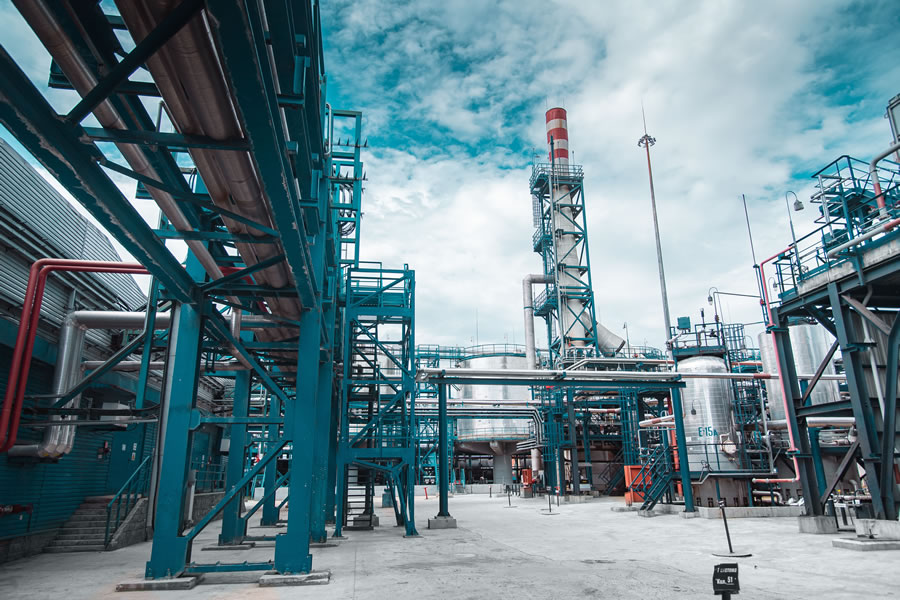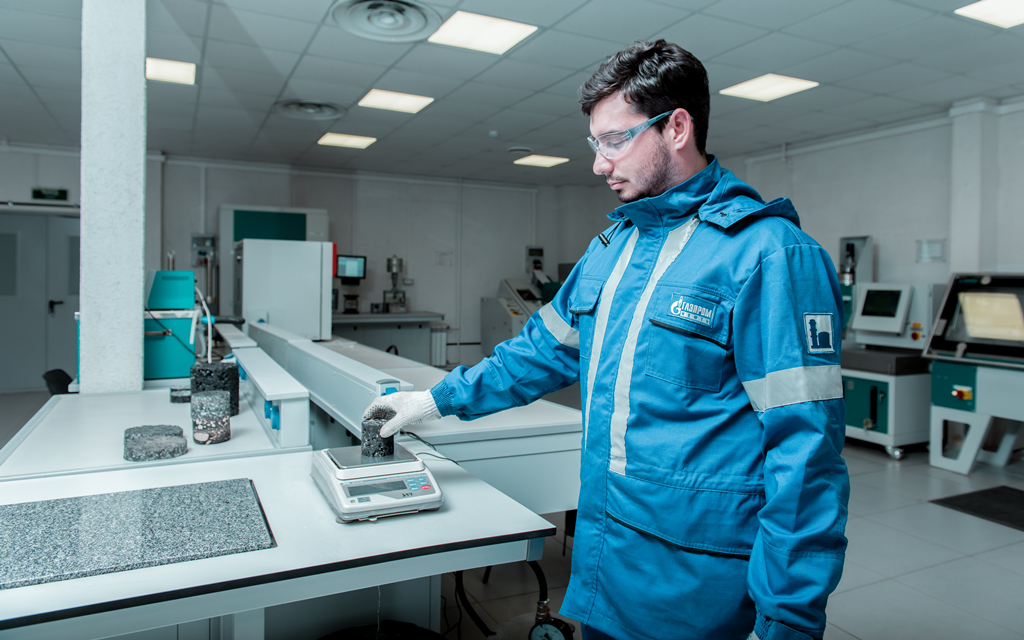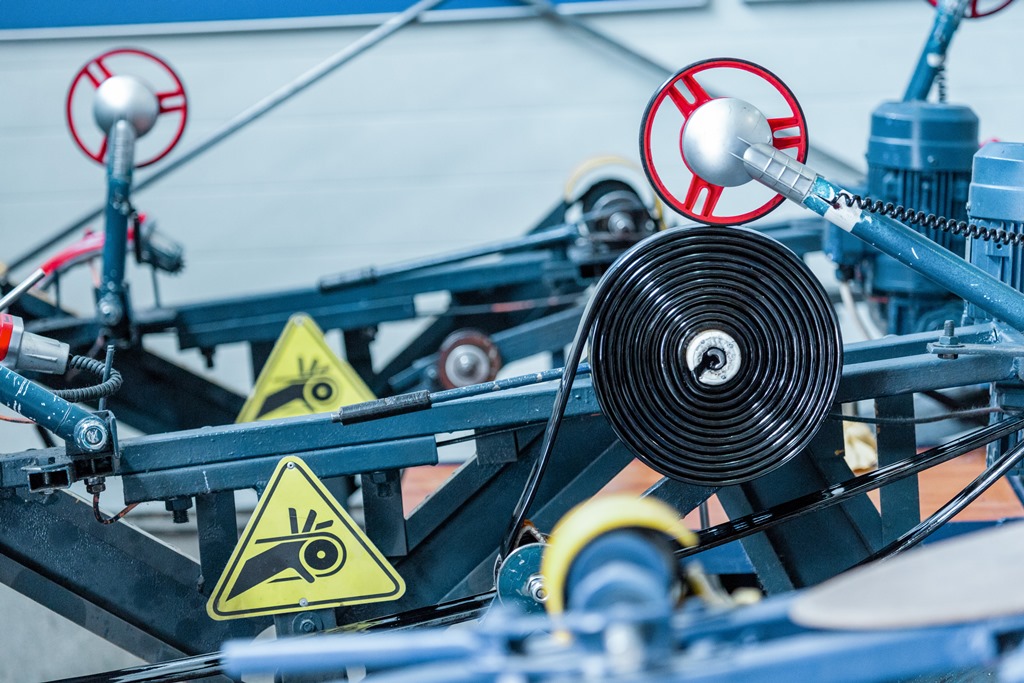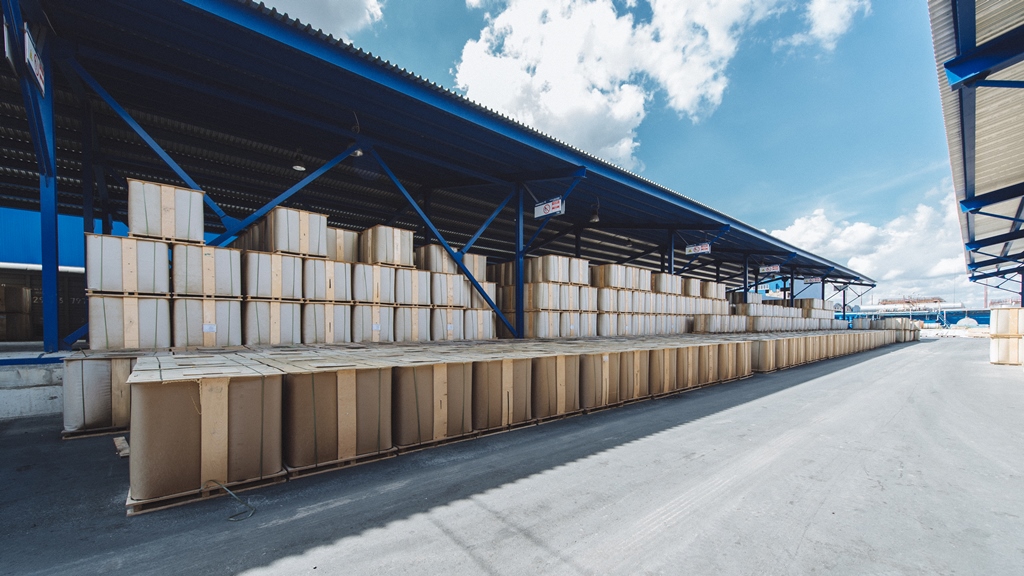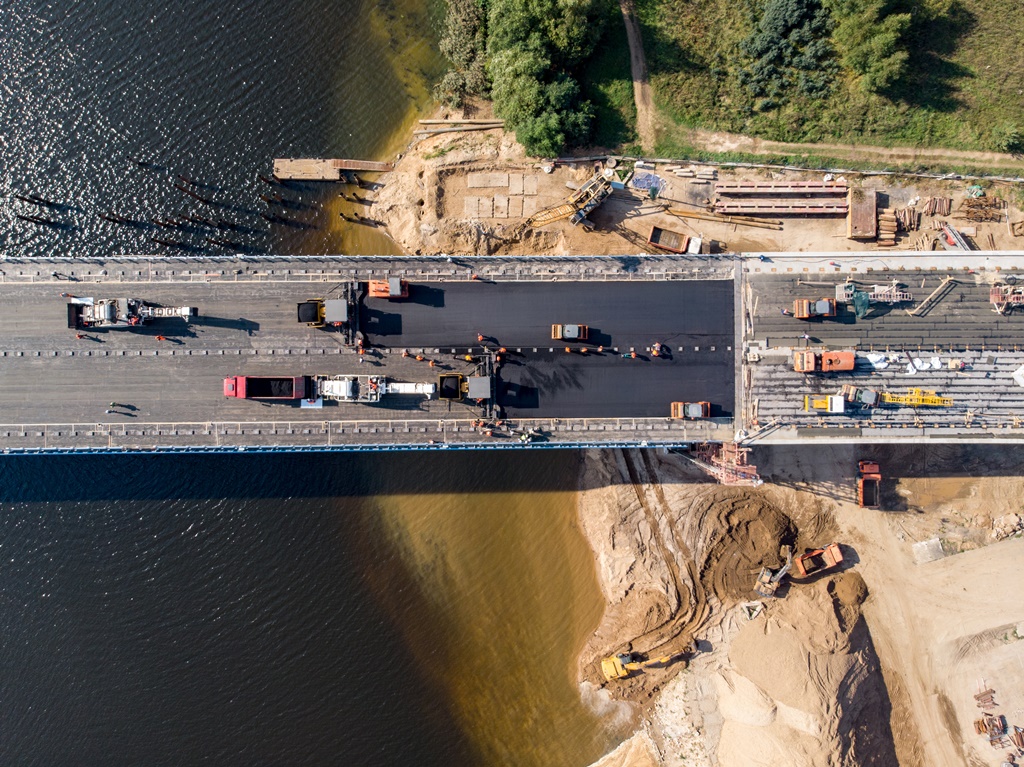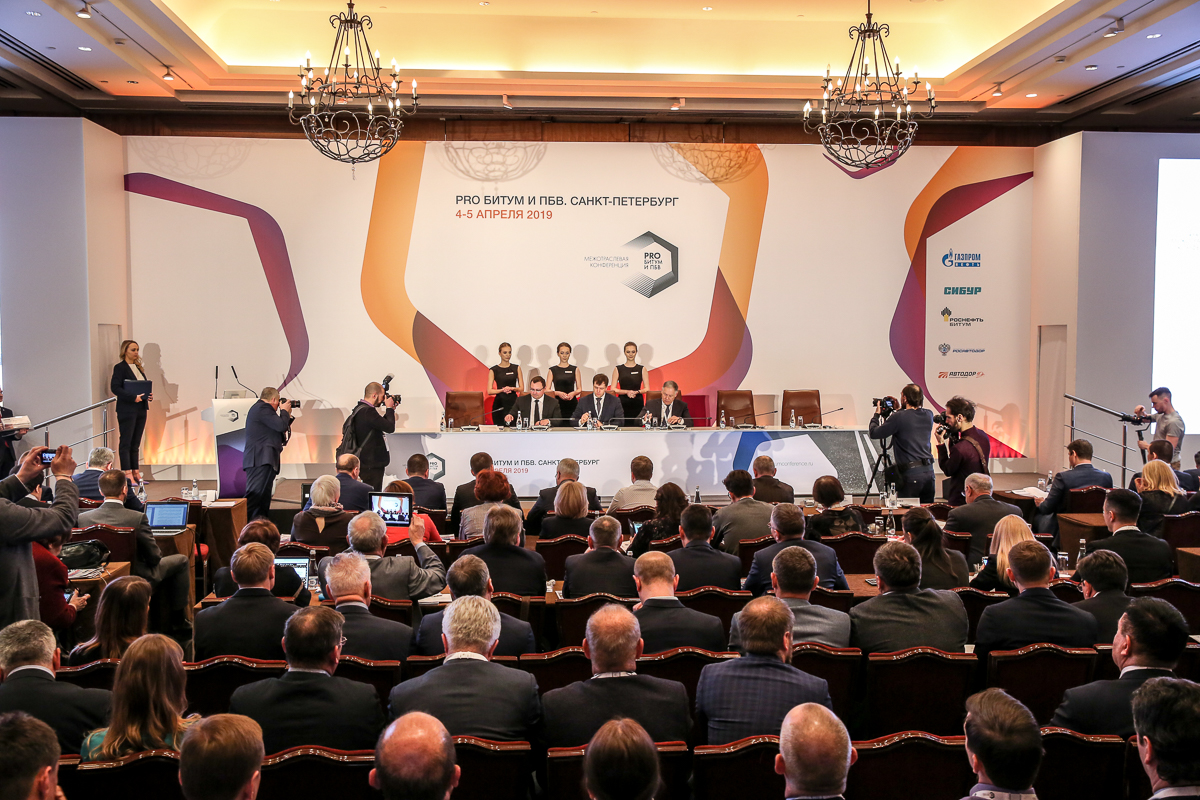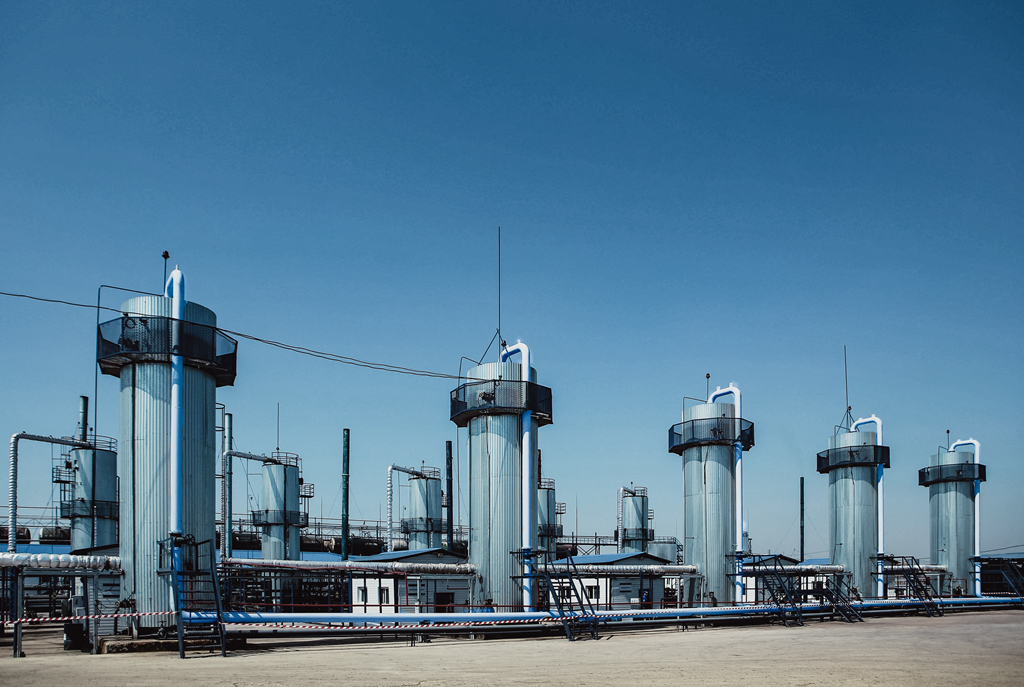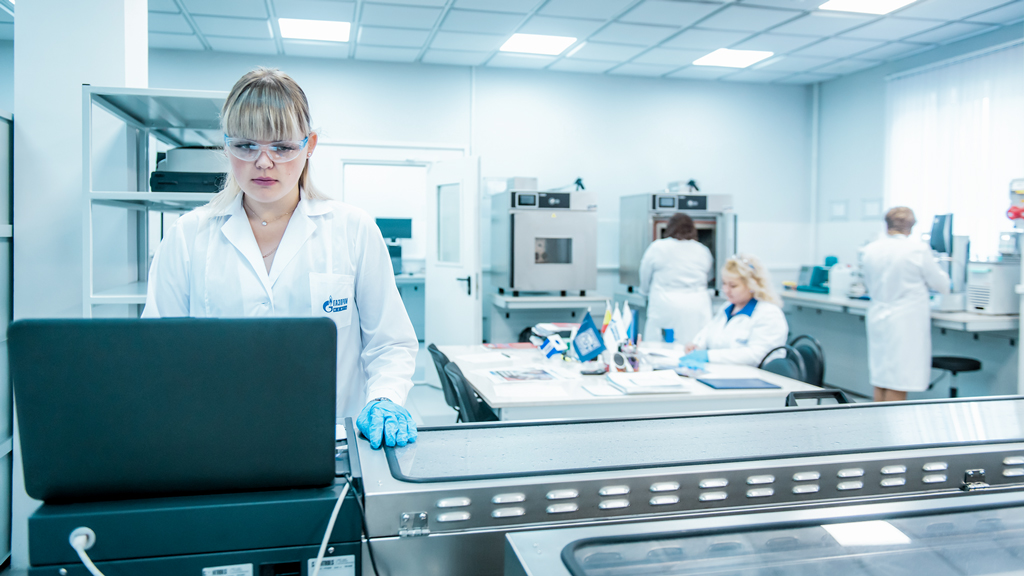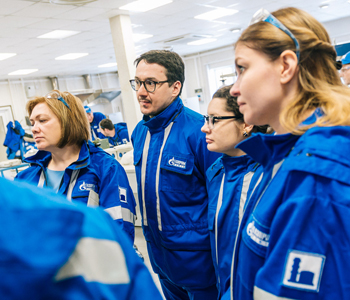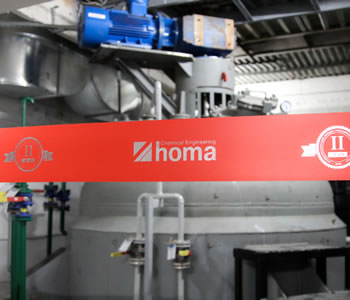What is the link between bitumen and SIBUR’s products?
Ever since the asphalt concrete mixture, or just asphalt, was invented, bitumen has been used as a binder for all components. It is a viscous petroleum product made fr om vacuum residue after distilling oil into light and heavy fractions.
As urban economies grow, the global vehicle fleet is expanding exponentially. It means that road pavements must withstand much heavier loads amid higher traffic intensity, density and speed. Polymer-bitumen binders (PBBs), where polymers are used to modify bitumen, can make asphalt sturdier. This is where the operator of Gazprom Neft’s bitumen business joins forces with SIBUR.
In 2011, Gazprom Neft became the first Russian company to make modified bitumen, launching production at Omsk Oil Refinery. Our polymer purchases started with 50 t in year one, growing to as much as 7,000 t in 2018 – a more than hundredfold increase over seven years to exceed a whopping RUB 1 bn annually.
The bitumen production units at the Omsk Refinery were launched in 2011.
The company operates bitumen units at Gazprom Neft’s refineries in Moscow, Omsk and Yaroslavl* (* Gazprom Neft has a 50% stake in Yaroslavnefteorgsintez). Gazpromneft-Bitumen Materials owns bitumen assets in Ryazan, Vyazma and Smolensk, and has production facilities in Kazakhstan and Serbia.
How do you see this cooperation going forward?
I think SIBUR is a reliable and responsive partner, and our relationship is based on parity and respect. For many years, we have been jointly holding a cross-industry conference and participating in industry-wide events. Our Science and Technology Centre (STC) and Ryazan Bitumen Binders Plant recently hosted site visits for SIBUR's experts to share experience. Similarly, members of Gazpromneft-Bitumen Materials’ team visited SIBUR’s Voronezh facility. Such on-site meetings allow us to discuss every aspect of our cooperation, see the processes first-hand and spot additional opportunities for interaction. I think this fine-tuning can really strengthen our relationship. As a polymer consumer, we can more precisely define additional quality requirements to offer better and more durable pavements.
What is your modified bitumen output today?
In 2018, we sold 202 kt of premium binders to lead Russia's fast-growing PBB market with a 40% share. Back in 2011, our volumes totalled a mere 2 kt, not to mention the poor appetite of the road construction industry that was unable to consume even 200 kt just three or four years ago. Now, everything is changing. We are rapidly approaching the levels seen globally. For example, the market share of PBBs is 15% in the USA, record-high 45% in Canada, and 10–25% in Europe. We have considerable upside to go.
Did you expect such growth when Gazprom Neft decided to spin off its bitumen business in 2014?
We were optimistic, and our development goals were ambitious.
In 2014, we just evolved into a standalone company. As the bitumen materials sales department of Gazprom Neft, we had acquired sufficient expertise and a deep enough insight into the road construction industry to become the subsidiary operator of its bitumen business. This is a natural step for any commercial entity seeking to improve performance, develop new technology and create high-margin products.
In terms of sales volumes, we expected a phased growth to 118 kt by 2018, although in 2014, PBBs accounted for just 3.7% of the road construction market. And we have been on the right track as the total output of polymer-bitumen binders now exceeds 400 ktpa, which is 6.3% of Russia's overall bitumen production (6.5 mt in 2018).
What are other takeaways fr om this five-year period?
We now have the most advanced product range. We offer 180 products – more than any of our peers. In many cases, we are the first to develop unique technological solutions in the bitumen market. We are the industry’s trendsetter.
Gazprom Neft was the first vertically integrated oil company in Russia to open its own Science and Technology Centre (STC) – and our peers have been following suit. For example, LUKOIL inaugurated a similar centre this May.
The R&D Centre, asphalt concrete laboratory.
In 2018, we acquired the Salsk bitumen terminal in the Rostov Region. As part of our development strategy, we plan to strengthen our foothold in the regions where supply is below the market potential. This will include both the acquisition and construction of assets and the long-term cooperation with other producers.
Development of new products and technologies is one of our priorities. Among other things, we offer protective repair compounds that can reduce maintenance costs by 30–35% over the 12-year road life cycle. Road repair contractors usually have to replace the wearing course by removing the top layer and installing a new surface once in every four years. With our compound, the top layer can be preserved and used longer. Asphalt concrete components are bound together to create an upper layer that restores the pavement’s properties for better performance. The compound will also minimise such adverse effects as erosion and improve grip thanks to a mineral filler making the surface somewhat abrasive.
Our another product is bitumen tape. In most cases, eliminating a transverse crack also involves the top layer removal, which means halting the traffic for 8–10 hours until the top layer is replaced. Imagine this happening on the Moscow Ring Road – it will be jam-packed for many kilometres. Such cracks can be cured with our bitumen tape, which is essentially a kind of road sticking plaster. It is an excellent solution for fixing road defects and speeding up the repair. The road can be used as soon as a few minutes after the application.
Who are the key consumers you are targeting?
These products are made for you and me and anyone else who drives along these roads, as 90% of bitumen is used in pavements. And the government is the principal customer. It is the relevant government bodies that decide where to construct these roads, what type of road is needed and what kind of traffic it will handle. This drives the demand for bitumen materials. Major road builders are some of our key partners. Our reach extends to all 85 regions of Russia fr om Kaliningrad to Vladivostok and from Franz Josef Land all the way to the Krasnodar Territory.
Production of bitumen tape.
“With a 40% share, we are the largest player in Russia's rapidly growing PBB market. Back in 2011, our volumes totalled a mere 2 kt."
Over the last decade, road construction ceased to be the only industry using bitumen. The market of bitumen derivatives is now much broader, encompassing airports, utilities, bridge construction, and what not. We are exploring this material to identify new industries we can target and new products we can create for them. We are already developing solutions for the coal industry and building competencies for haul roads. The metals industry is also on our radar.
Since we are involved in road and pavement construction, our goal is to make them safe and reliable. So we do not only sell for a profit, but we also sell for a purpose.
What do you mean by “selling for a purpose”?
It is no longer enough to produce bitumen just in line with the national quality standards. Customers need a comprehensive service including a refined formula, product, delivery, and support package. Say, you need to deliver bitumen materials to remote locations lacking infrastructure and the customer has no liquid storage tanks for them. In this case, we package our products and deliver them in clovertainers – a modern, convenient type of packaging. Wh ere needed, we deliver hot products to asphalt plants just in time for the production start without compromising the binder quality during transportation, which is key for bitumen. This solves some of the customer’s problems.
Bitumen packaging in clovertainers at the Ryazan Bitumen Binders Plant.
With the Safe and High-Quality Roads and Safe and High-Quality Roads 2.0 priority national projects under way, it is important to adapt binder formulae to specific operating environments and hand-pick asphalt components. Thanks to our STC, we can help customers with this challenge, provide professional assessment of materials and solutions for upcoming construction projects, and carry out a diagnostic check and inspection of the existing pavement.
"It is crucial to have an ongoing dialogue with the customer and a profound understanding of each region's market."
What do you think about the progress of the Safe and High-Quality Roads 2.0 national project? How does your company contribute to it?
Since day one, we have been maintaining an active dialogue and liaison with the Federal Road Agency and State Company Avtodor. We are involved in all aspects of both the Safe and High-Quality Roads programme and its second phase, Safe and High-Quality Roads 2.0.
First, we contribute with our products. Our company accounts for a third of Russia’s bitumen materials output.
Second, we are involved in drafting all regulations and guidelines and their updates.
monitoring initiatives, round robin tests and any procedures associated with quality checks. Furthermore, we contribute to developing a common information framework via the PRO Bitumen and PMBs conference. The Safe and High-Quality Roads project is a key topic on the agenda of this industry event. It enables producers, road builders, design institutes, and customers to share and reconcile their views, understand each other's expectations, problems and challenges, and identify development and cooperation opportunities.
Asphalt paving of the bridge over the Dubna River using Gazpromneft-Bitumen Materials technology, 2018.
“We held the first conference in 2012 for an audience of 40 participants. In 2019, the PRO BITUM and PBB conference welcomed over 600 industry representatives."
Do you mean the conference formerly known as Bitumen and Polymer Bitumen Binders. Agenda that you hold jointly with SIBUR? What sets it apart from other industry events?
We held the first conference in 2012 for an audience of 40 participants. Inspired by the market's enthusiastic response, we invited SIBUR, the Federal Road Agency, and Avtodor to join in and have since held seven conferences together. In 2017, Rosneft Bitumen joined us as a co-partner. The conference was rebranded, receiving a more dynamic name and recognisable logo. In 2019, it welcomed more than 600 participants representing the country's entire industry of petroleum products for road construction.
It is an important discussion forum and the only event focused solely on the bitumen sector development. And we walk the walk too, which translates into rising annual consumption of advanced materials by the Russian road construction industry. This is evidenced by the double-digit growth in domestic consumption of modified bitumen: there has not been a single year when it slid below 10%.
The conference has a profound effect, with 85% of the goals set at these seven events already achieved. Regulations and guidelines are becoming better fit for today. The market is more open now, and its rules are more transparent. The barriers to introducing advanced modified bitumens are being gradually shifted and removed.
This conference is vital for staying on top of trends and developments.
The PRO BITUM and PBB Conference, 2019. Photo: rosavtodor.ru.
“As a bitumen business operator, we aim to develop the best products in the world and are making good progress in this.”
What is your view of development opportunities?
Gazprom Neft is focused on creating domestic innovative solutions likely to enjoy steady demand. As the operator of its bitumen business, we aim to develop the best products in the world and are making good progress in this. Our range of advanced materials for airfields, a protective repair compound for asphalt concrete pavements, and modified bitumen formulae adapted to specific environments are all highly competitive in the Russian market.
Global majors are interested in our innovations, and we are interested in some of their solutions, so we share technologies and knowledge to move forward and unlock new opportunities.
Your company is an exporter as well. Do Russian products gain traction abroad?
Over the last five years, we exported our products to 56 countries. Gazprom Neft’s bitumen materials are now used in Europe, Central Asia, Africa, and South America. We have yet to tap the North American and Australian markets, but I am confident that it is just a matter of a few years.
Innovative value-added bitumen products are our most successful exports. Thanks to our STC, we can meet all international standards, including Superpave, EN, ASTM, and GOST in the former Soviet Union countries. Another important aspect is our ability to adapt binder formulae to a specific climate. We are willing and able to follow the customer’s specifications to offer a bitumen product tailored to the target environment, whatever the continent.
The Company's production facility in Kazakhstan.
“Our team is what makes it all possible. Most importantly, all of us – road construction and petrochemical experts likewise – share a common goal to make Russian roads better by offering products and solutions that will make our transport network a quality model to follow."
Our personalised approach ensures the best results. We had an interesting case wh ere a binder we made for a Vietnamese customer failed the tests in local labs despite the issued conformity certificate. It turned out that in Vietnam the so-called rutting tests, which simulate repeating traffic loads, are conducted at 60°С in a humid environment, while in Russia they are run at 20°С in a dry environment. So our STC adjusted the formula to take account of the climate parameters and altered the composition to obtain a binder that surpassed the local requirements and was finally certified as a perfect fit for the Vietnamese market. It is crucial to have an ongoing dialogue with the customer and a profound understanding of each region's market.
You satisfy a third of the domestic demand for bitumen materials and lead the field in PBBs with customers all over Russia and the globe, while also maintaining a personalised customer focus. How do you do that?
It is quite straightforward, I would say. Our team is what makes it all possible – a strong team of bitumen professionals, that is. Most importantly, all of us – road construction and petrochemical experts likewise – share a common goal to make Russian roads better by offering products and solutions that will make our transport network a quality model to follow. People are our key asset.
Great teams help shape great leaders. At Gazpromneft-Bitumen Materials, we hand-pick our specialists and seek to hire people who share our values. They need to be open to new ideas and experiences and eager to make breakthroughs.
For example, the person in charge of our STC, who is also Head of Technology Development and Quality Control, is a highly skilled professional with a background in road construction and teaching at Moscow Automobile and Road Construction State Technical University (MADI). So he wants his team to be up to the mark. The STC employs unique experts who know virtually everything about bitumen and asphalt concrete and yet continue to explore and look into new bitumen applications and ways to improve the asphalt quality. They create bitumen materials and work to reach new heights.
The R&D Centre, employees of the bitumen binder laboratory.
"I think SIBUR is a reliable and responsive partner, and our relationship is based on parity and respect."
Two years ago, we launched a training programme to nurture road construction professionals. It is targeted at university and even school students. We contribute to the comprehensive training of students in a school we support. In 2018, we opened a road and airfield construction department at the Ryazan branch of Moscow Polytechnic University. We communicate with experts and look for opportunities to cooperate with scientists who have attracted our attention at oil and road construction conferences. Likewise, if we see a media report or an article saying that a young research team has come up with new ideas for road construction, our HR staff will make sure to contact them to consider cooperation opportunities. Unlocking the youth's potential is one of our top priorities.
What should be done to finally raise the Russian road industry to the international level?
Our part is to make a wide range of high-quality bitumen materials so that road builders could focus on doing their job rather than worrying about the quality of products they use. I believe that the quality of Russian roads has considerably improved in recent years. I can tell you that I really enjoy all the new road junctions and bridges built in St Petersburg wh ere I live. We have already seen the launch of some parts of the new M-11 highway between Moscow and St Petersburg boasting top-quality pavements. Then there is the Sortavala highway that will run through Karelia and be well on par with European highways. The number of such projects grows every year, making us all proud of Russian roads.
Photo: Press service of Gazpromneft-Bitumen Materials.
Download PDF


